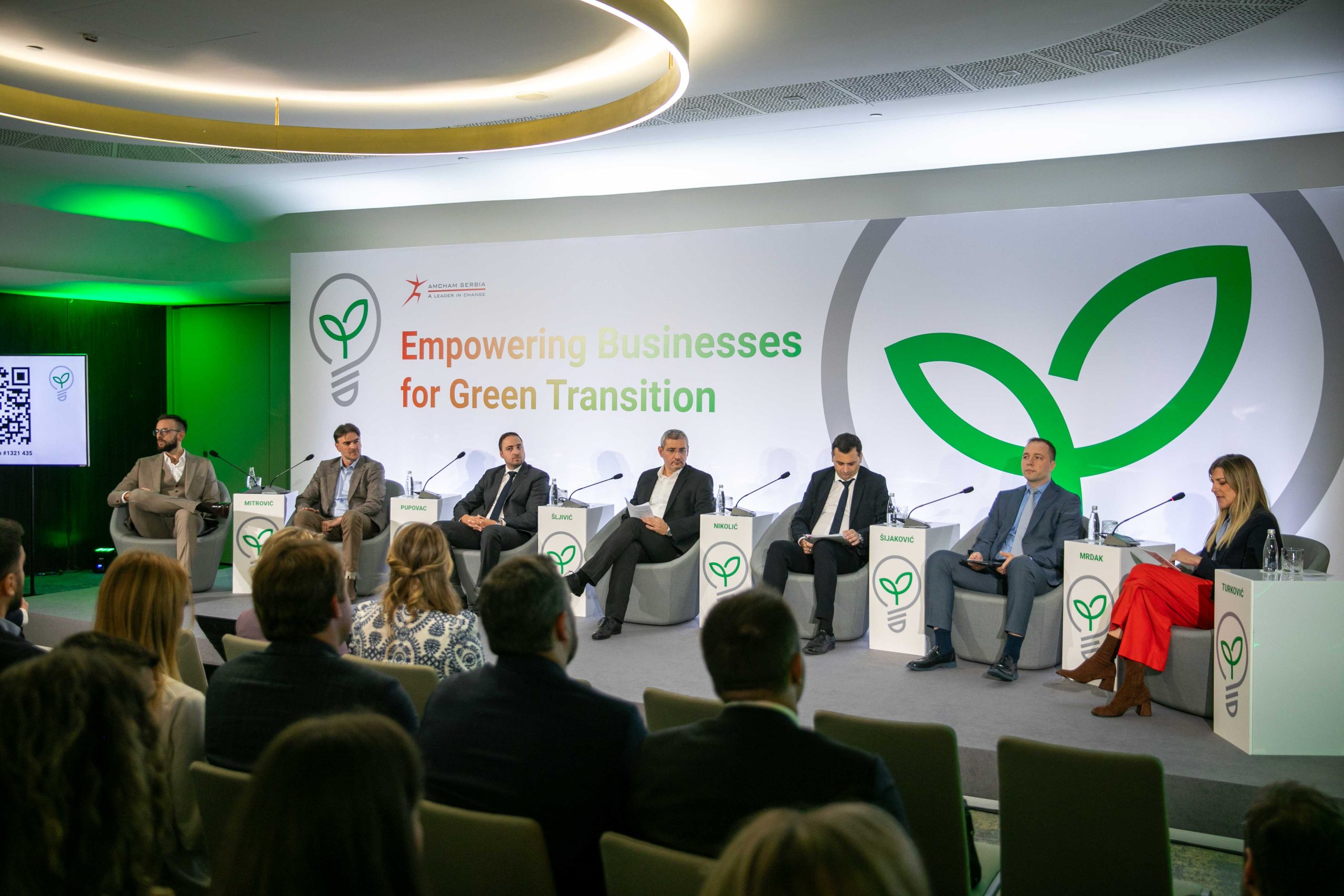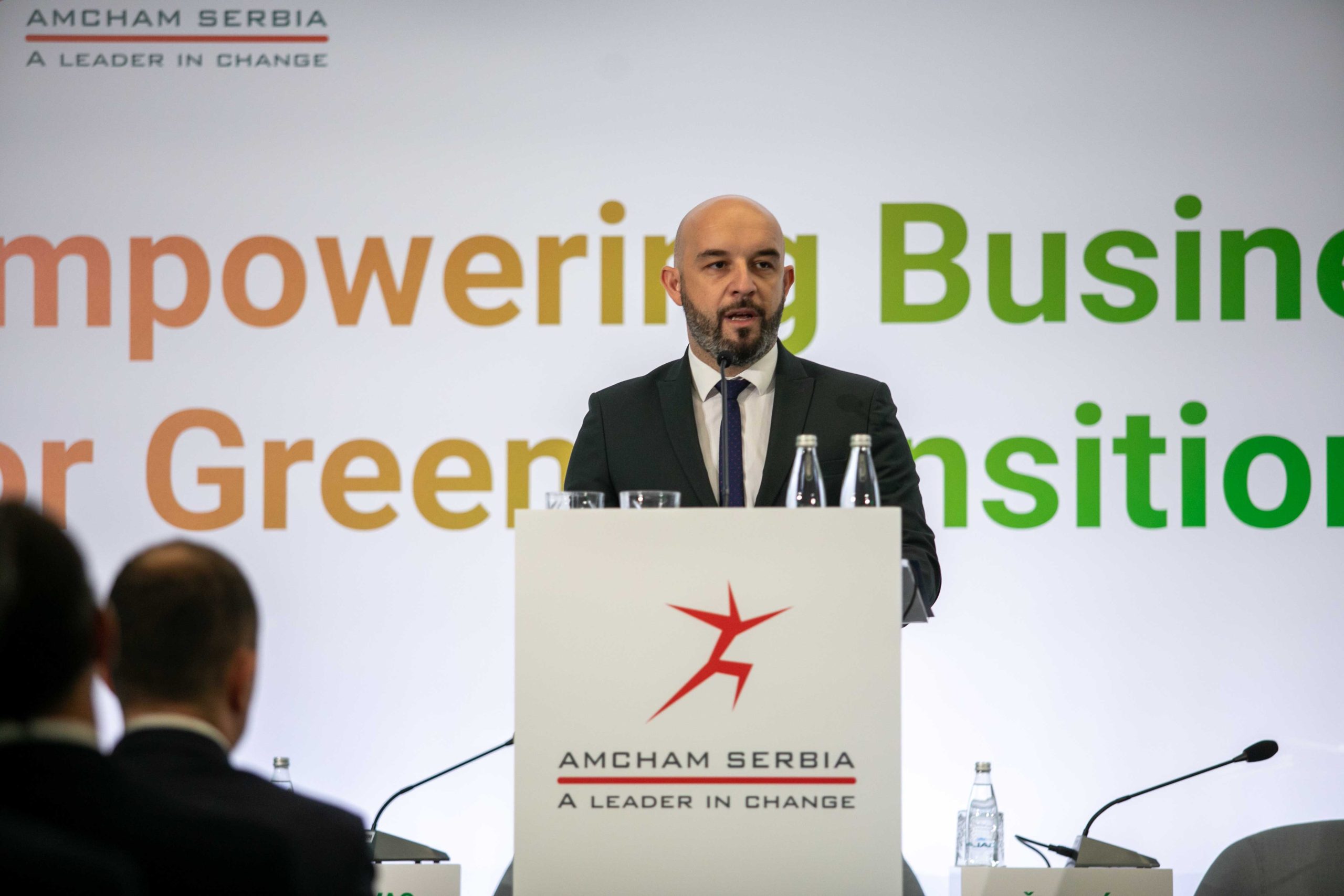
Economy on the path to green transition
How will the new Energy Law impact further decarbonization of the economy?
The consistent implementation of the Green Agenda is one of the increasingly important reforms demanded by the members of the American Chamber of Commerce in Serbia (AmCham Serbia), as reflected in AmCham’s annual “Lap Time” survey. This survey shows that the Green Agenda has climbed from the 11th spot on the priority list five years ago to a high 2nd place last year, making it the fastest-growing priority for companies aiming to improve the business environment. The rapid rise in the importance of green policies, both in the fields of energy and environmental protection, is driven by corporate policies, decarbonization obligations, and sustainable business principles, as well as the need to align with European Union regulations and the ability to sell their products in the EU market. Therefore, it comes as no surprise that the amendments to the Energy Law, soon to be discussed by lawmakers, were a key topic at the “Economy on the Path to Green Transition” conference organized by the American Chamber of Commerce in Serbia.

“The consistent implementation of the Green Agenda is one of AmCham’s strategic priorities, with energy being a crucial component of the Green Agenda for the further decarbonization of the economy. Decarbonizing the economy is essential for companies to remain competitive in the European Union market, which is our largest export market, but also for ensuring that we, as citizens, breathe clean air. The American Chamber of Commerce is pleased with the constructive cooperation with the Ministry of Mining and Energy on many issues and the progress made so far in the energy sector. In the coming period, it will be important for us to monitor the consistent application of the new legal solutions that will enable companies to further invest in their own green energy production capacities, advance large renewable energy projects, and foster synergies between them through Corporate Power Purchase Agreements. We also welcome the realization of the first and, hopefully this year, the second auctions for green megawatts, while maintaining the stability of the energy system and continuously improving it. I hope that public energy companies, alongside regulatory changes, will receive all the necessary resources and tools to support these transformations,” said Stefan Lazarević, Chairman of the Board of AmCham Serbia.

“The amendments to the Energy Law are aimed at improving the functionality of the energy system and ensuring greater energy security, both in the immediate future and during the transition to clean energy sources. These legal changes are also crucial for the better functioning of the electricity market, which will be fully aligned with European regulations, as well as for strengthening and protecting end consumers. Among other things, we are introducing, for the first time, the possibility for end consumers to be supplied directly by the producer, a long-standing demand from the business community, thus promoting the development of the private sector. The energy transition concerns us all, and the active participation of businesses can be one of the drivers of decarbonization in the energy sector,” emphasized Stefan Srbljanović, State Secretary at the Ministry of Mining and Energy.
Panel participants at the conference included Rade Mrdak, Advisor at the Ministry of Mining and Energy, Davor Pupovac, Director of Market Analysis and Risk Management at Elektroprivreda Srbije, Nenad Šijaković, Advisor to the CEO for International and Regulatory Affairs at Elektromreža Srbije, Dalibor Nikolić, Director of the Directorate for DEES Management at Elektrodistribucija Srbije, and Jovan Šljivić, Senior Manager at KPMG. The panellists provided the audience with a closer look at the amendments to the Energy Law and the new developments, particularly regarding the newly introduced concept of the “active consumer,” the prerequisites for its successful implementation, and the various roles that the guaranteed supplier, transmission, and distribution system operators will play in this process. The panel also covered changes in connection procedures for distribution and transmission networks and plans for further system capacity improvements. Part of the discussion was dedicated to the potential alignment with the Carbon Border Adjustment Mechanism (CBAM) and ways the economy can reduce its direct and indirect CO2 emissions.
Related posts
A1 Serbia launches educational game to promote online safety for children
This initiative is part of A1 Serbia’s broader ESG strategy, aimed at ethical technology use
Pet Day: Mars reminds us of the importance and benefits of pet adoption
362 million dogs and cats worldwide currently live on the streets or in shelters
IKEA unveils new edition of Its iconic STOCKHOLM collection
The latest edition features a wide range of furniture, textiles, lighting, and decorative pieces




